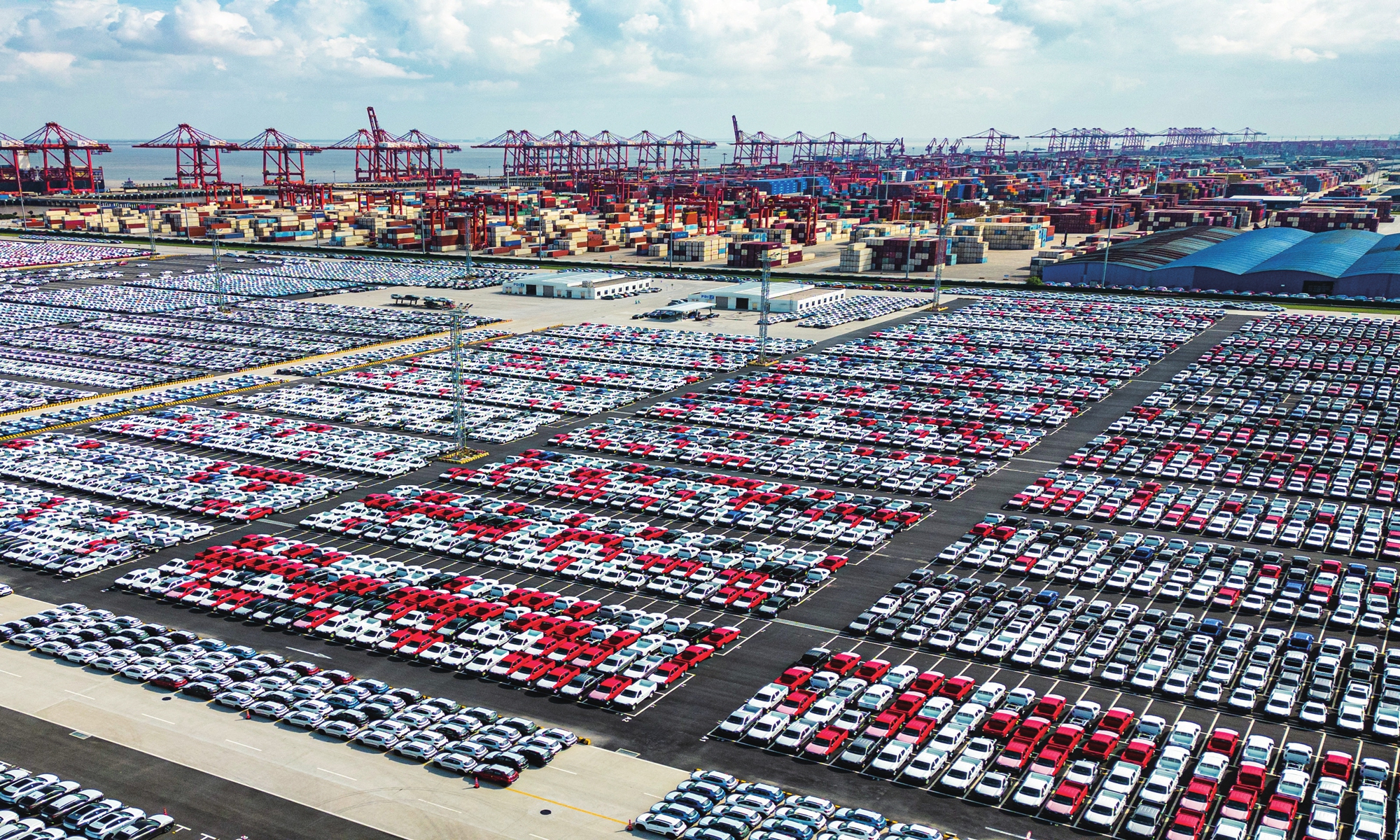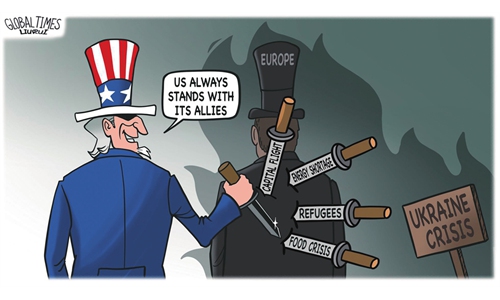
Automobiles are ready to be exported. Photo: cnsphoto.
Germany's Finance Minister Christian Lindner said on Monday that the EU and the US need dialogue to ease trade tensions triggered by the US Inflation Reduction Act, which is threatening European businesses and industry, Reuters reported.
Linder's remarks are part of a recent backlash in the EU against the US Inflation Reduction Act. The EU has "serious concerns" about the act, saying it breaches international trade rules, according to an official document seen by CNBC.
However, despite the growing backlash, it would be naive for the EU to think that it can change the US policy tendency to protectionism through "dialogue."
In the document that will be reportedly presented to US officials, the EU listed nine of the provisions in the legislation, which restrict subsidies and tax credits to products made in the US or companies operating there. In particular, a tax credit worth $7,500 will be offered to purchases of electric vehicles that are assembled in Canada, Mexico and the US. Moreover, to qualify for the tax credit, electric carmakers must also source a significant percentage of major battery components, including metals like lithium, nickel and cobalt, from the US or countries that have free trade agreements with the US.
While the Biden administration touted the Inflation Reduction Act as efforts to boost domestic manufacturing in clean energy areas, the legislation is threatening global electric carmakers and upstream suppliers to locate plants and produce goods in the US or they will face the prospect of being shut out of the market.
Over the years, with the booming development of the global electric vehicle industry, relevant industrial chains and supply chains have been intricately intertwined among various countries. This is also why many countries only require electric vehicles to be assembled within the borders when it comes to making subsidy policy for new-energy vehicles, with no requirement for the localization of the entire supply chain.
Therefore, the US' overreach in its so-called Inflation Reduction Act in stipulating places where battery minerals and units should be processed is a clear discrimination against foreign products, a typical protectionist move. Ironically, the US often accuses China of failing to meet its free-trade commitments, even as it takes protectionist moves against foreign companies. New-energy vehicle makers in China, both domestic and foreign ones, are entitled to industry subsidies as long as they meet criteria.
Moreover, it should be noted that building barriers through subsidies will not only cause improper disruptions in the global industrial chain and supply chain of electric vehicles, but will also trigger a series of chain reactions by generating major shocks to the global economy. This is because with the US' legislation undercutting others' industries, it is possible for European and Asian countries to follow suit to roll out their own countermeasures.
For instance, the EU threatened on Monday to take retaliatory measures against the US for electric car subsidies that will put European industries at a huge disadvantage. German Chancellor Olaf Scholz warned last month that the US' measures could trigger "a huge tariff war," the Radio France International reported. This means that the US' Inflation Reduction Act has the potential to trigger a trade war between the US and the EU, with more discriminatory trade measures to be issued by the two sides if Europe's concerns are not addressed. Against the backdrop of a global economic slowdown, such prospects seem all the more likely.
Indeed, not only the EU but also Asian economies like South Korea and Japan will be drawn into a dangerous trade confrontation to protect their interests from US protectionism. Japan and South Korea - both are important players in the industrial chain - have expressed concerns about the US' unfair subsidy policy. China is also a major producer of electric vehicles.
The US government has made the reshoring of manufacturing an important part of its economic policy in recent years. In the past, it tried to mainly target Chinese manufacturing to achieve the goals. But now the Biden administration's new legislation lays bare the fact that the US doesn't care whether manufacturing jobs will flow back to the US from China or from Europe and whether it will have a devastating impact on free trade and the global industrial and supply chains. In this sense, the US Inflation Reduction Act is dragging the global economy and trade into the abyss.



